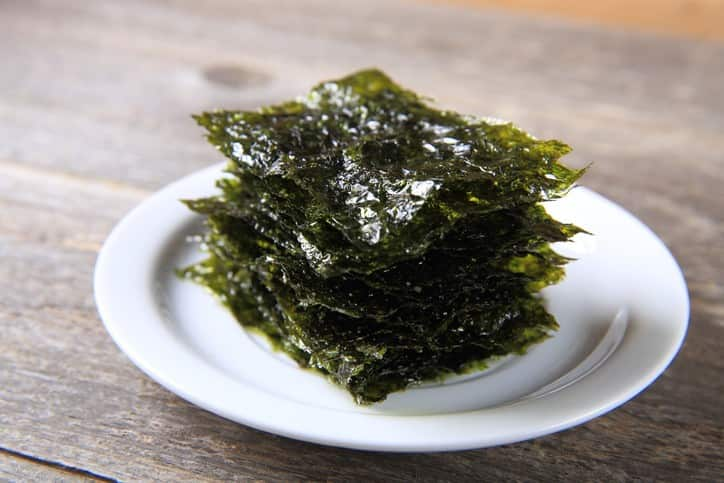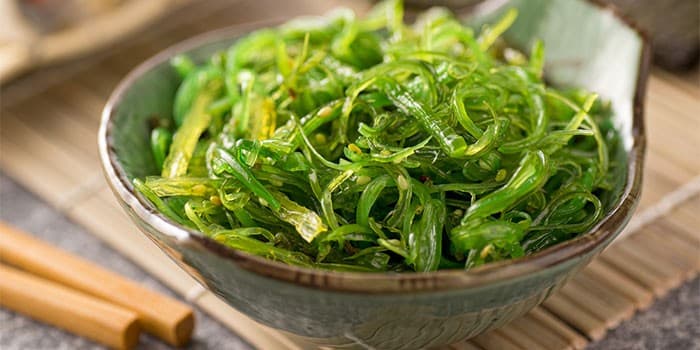Does Sea Moss Make You Poop?
The seaweeds, which grow at the bottom of the water and have a hollow body to reach the surface, hit the shores with the waves.
Chlorophyll-producing algae are found in parasitic plant species.
It is used in the pharmaceutical, food and cosmetic industries in countries such as China, Japan and Korea.
Did you know that seaweed contains vitamins A, B1, B2, B6 and C, as well as niacin, potassium, iodine, iron, magnesium and calcium?
Seaweed, which is consumed in almost all kinds, has benefits such as shedding intestinal worms, strengthening hair, smoothing the skin.
It is the main ingredient in salads, teas and main dishes.
Seaweed usually grows on the bottom of the sea, but can also be found on trees, between rocks, or on water.
It is a plant that differs in terms of utility and color depending on where they live.
Seaweed, which has color tones from dark green to light green, has a very common usage area, especially in Asian cuisine.
You can find all the details about seaweed consumption and benefits in our article.

What Will We Learn?
What Is Sea Moss?
Seaweed, commonly known as Irish seaweed, is red algae known to heal skin and boost your body’s immunity.
Known for its health benefits, seaweed is part of the chondrus crispus species.
The strongest country in algae trade is China.
Seaweed collected from the bottom of the ocean in China is of better quality than the algae that hit the rocks.
This vegetation, which is beneficial to human health, meets both the hiding and nutritional needs of living animals living under the water.
Seaweed is widely consumed in many countries such as Vietnam, Korea, Peru, Ireland, Wales and Norway, especially in Asia.
Algae have different names and colors depending on the region they are found in.
The main reason for the consumption of this plant is that it is known as a source of nutrients for its health benefits.
In terms of its benefits, it is one of the common herbs that has been studied in various studies.
- Knotty moss, a moss native to the North Atlantic region, is a type of plant that grows in Norway.
- Mosses specific to countries are named as filamentous, tubular, leafy and striated.

Does Sea Moss Make You Poop?
Yeah. The high fiber concentration in seaweed can cause poop.
Seaweed, which is consumed in almost all kinds, has benefits such as shedding intestinal worms, strengthening hair, smoothing the skin.
It is the main ingredient in salads, teas and main dishes.
How to Consume Seaweed?
Seaweed is a plant rich in vitamins and minerals because it lives in the sea. Seaweed, which is generally preferred in Asian cuisine, can be consumed in the following ways:
- In making pastries,
- In various soups,
- In making sushi,
- As herbal tea,
- By frying,
- It can be consumed raw.
Seaweed consumed raw is healthier than other methods of use. In its use as sushi, seaweed is dried and pressed with special methods. Although it is rare, it can also be consumed by frying.
However, when seaweed is fried, the rate of vitamins and minerals in it decreases considerably.
In case of any discomfort, instead of using these plants for treatment, it is necessary to go to a doctor’s control.
You should definitely read our article on the benefits of sweet potatoes.

What Are The Benefits Of Sea Moss?
Sea moss have antioxidants, anti-inflammatory and anti-viral properties.
Seaweed is frequently used in care products due to its effects on the skin.
Sea moss is an excellent alternative to thickening agents.
Since sea moss contains potassium chloride, it benefits the immune system by helping to reduce infections.
It is very easy to find seaweed, which is frequently consumed in different parts of the world, in our country as well.
1. It is a source of iodine.
Iodine is extremely important for healthy thyroid glands. Thanks to the iodine and tyrosine it contains, seaweed helps the thyroid glands to work properly.
2. It is a storehouse of vitamins.
Seaweed; It is extremely rich in vitamins A, C, E and K. In addition, seaweed is an important source of protein, fiber, iron and copper.
3. Protects cells.
Seaweed is extremely rich in antioxidants. These antioxidants prevent cell damage.
4. It is important for gut health.
Fiber is extremely valuable for healthy intestines. Seaweed is also rich in fiber.
When consumed correctly, seaweed helps maintain good gut bacteria.
Good gut bacteria play a big role in the proper functioning of the gut.
Seaweed affects bowel movements and helps your bowels work normally.
5. May aid weight loss.
Seaweed helps speed up metabolism. An accelerated metabolism helps you lose weight.
The high fiber in algae aids digestion.
6. It is heart-friendly.
The high level of LDL bad cholesterol is called.
As this cholesterol is high, cardiovascular health is adversely affected.
Foods that balance this need to be consumed.
Seaweed is an effective food in lowering this bad cholesterol.
Seaweed can be consumed by adding it to tea, soup or traditional dishes.
If you are consuming coconut water, we have told you in detail how to make it taste perfect.
7. May prevent respiratory tract diseases.
Seaweed, which has a strong vitamin store, is a very effective food to prevent upper respiratory tract diseases.
Seaweed, which has expectorant properties, can prevent inflammation of the throat. It also prevents deformities in the lungs.
8. It is good for muscle and bone pain.
In ancient times, it was used to prevent infection of the open place in cases such as wounds and burns.
Seaweed, which quickly heals the area where the skin is damaged, also acts as a cure for joint, muscle and bone pain.
9. It is good for the stomach.
Seaweed tea is perfect for stomach health. Balances stomach acid.
It strengthens the stomach muscle to grind the food.
It also prevents diseases such as reflux and ulcers.
Studies have shown that seaweed prevents diseases such as fatigue and anorexia.
10. It prevents the accumulation of toxin cells.
Algae, which has high antioxidant properties, purifies the body from free radicals and prevents the body from accumulating cells such as excess acid, fat and toxins.
11. It helps you lose weight.
Since seaweed has the ability to keep you full for a long time, it is also effective in losing weight. Seaweed, which has low calories, is at the top of the diet lists.
100 mg of seaweed consists of the following components:
- Water
- Iron
- Zinc
- Calcium
- Chromium
- Potassium
- Sodium
- Calorie – 49
- Carbs – 12.3g
- Protein – 1.5g
- Vitamins A, B, C, K, E
- Dietary fiber
- Antioxidants
- Lodine

Side Effects Of Sea Moss
Nausea and vomiting are some of the common side effects after consuming too much sea moss.
When seaweed is consumed in excess, it leads to iodine overload. This, in turn, can cause problems with the thyroid glands.
Seaweed can cause allergic reactions in some people.
If you are wondering about the Benefits of Lemon and Olive Oil, you can read this article.
A Short Summary
Seaweed has a great effect on the human body.
Therefore, excessive consumption of seaweed can cause diarrhea.
Consuming too much seaweed can cause some problems with the gastrointestinal gi tract.
If you boil raw or dried sea moss in water, you can obtain a mixture in gel form and consume it.
If you do not want to experience discomfort such as diarrhea, make sure the amount of sea moss is adjusted correctly.
You can also buy ready-made sea moss gels.
If you liked our Does Sea Moss Make You Poop article, you can write one comment.
